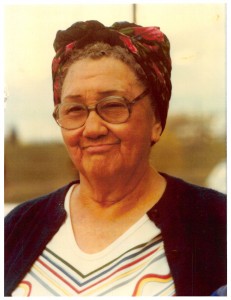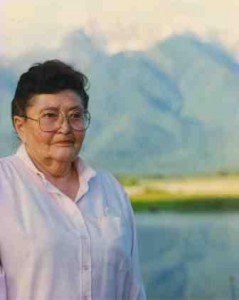
When the confederated Salish, Pend d’Oreille, and Kootenai tribes needed more information on historical events, cultural customs, or the Kootenai language, they did not look in a library or on the web; they asked Adeline Abraham Mathias. A member of the Ksanka band of Kootenai—or Ktunaxa—people, the elder lived her entire life on the Flathead Indian Reservation. Over the span of her lifetime (1910-2007), she witnessed how the influx of non-Indians profoundly altered her people’s homeland. The great-granddaughter of a Kootenai chief, Adeline Mathias was the recipient of cultural, spiritual, and historical knowledge, which she in turn passed along to the next generation of Kootenai people.
Atliyi “Adeline” Paul Abraham was born near Dayton, Montana, in 1910, the same year the fertile valleys of Flathead Indian Reservation were opened to homesteading. The arriving farmers transformed the diverse riparian habitat into a patchwork of fields and altered the course of rivers to suit their irrigation needs.
More profoundly, the newcomers brought different social and cultural ways that, over time, threatened the continuity of the Kootenai, Salish, and Kalispel (Pend d’Oreille) languages and way of life. In just three generations, the number of fluent Kootenai speakers fell to only a handful of individuals, one of whom was Adeline Mathias. Continue reading “I Was a Strong Woman”: Adeline Abraham Mathias
